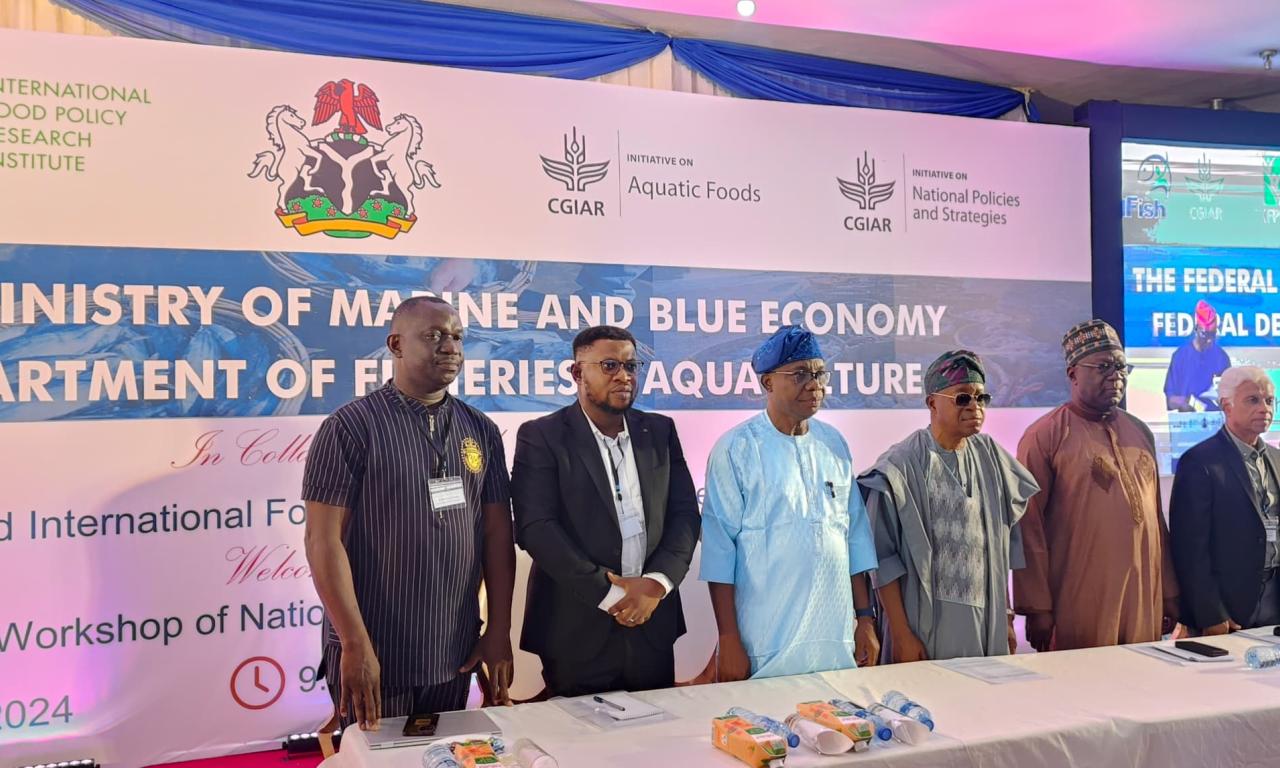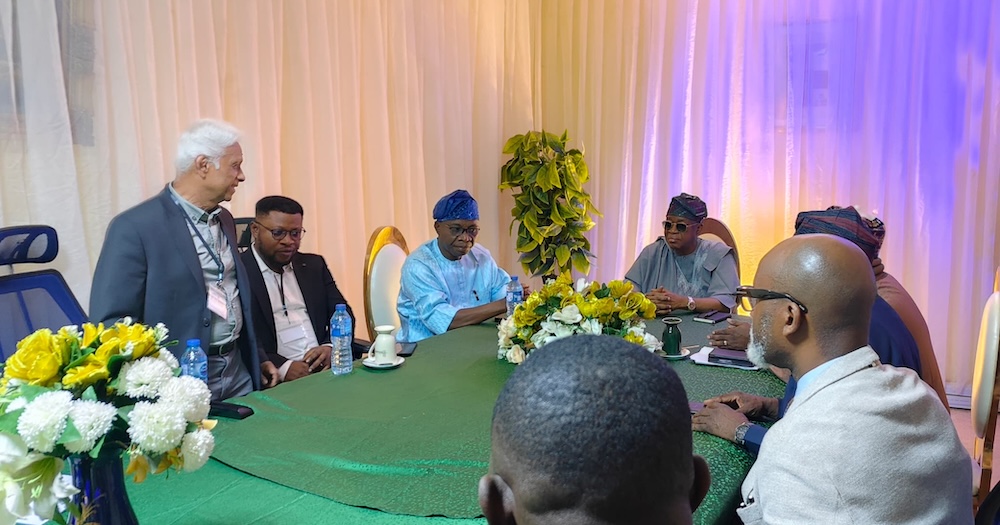
The Nigerian Government, in collaboration with WorldFish and the International Food Policy Research Institute (IFPRI), convened a two-day Validation Workshop on Fisheries and Aquaculture Policy in Abuja recently.
The workshop brought together stakeholders from Nigeria's fisheries and aquaculture sector to chart a path toward positioning the nation as a global leader in aquaculture production. Discussions focused on adopting modern practices, enhancing access to financing and markets for farmers, and driving innovation through research and development to unlock the sector's full potential.
Policy Challenges and Opportunities in Fisheries and Aquaculture
Nigeria’s fisheries and aquaculture sector plays a vital role in food and nutrition security and economic growth but faces significant challenges. During the Validation Workshop on Fisheries and Aquaculture Policy held in November 2024, stakeholders highlighted obstacles such as limited access to quality inputs, insufficient infrastructure, and inadequate financial support.
Speaking at the workshop, Nigeria’s Honorable Minister of Marine and Blue Economy, Adegboyega Oyetola, underscored the government’s dedication to bridging fish supply gaps while fostering economic inclusion and sustainability; adding that collaborative efforts with international bodies like WorldFish and International Food Policy Research Institute aim to position Nigeria’s fisheries and aquaculture as a leading agricultural value chain.
The Minister reiterated the significance of the ‘National Fisheries and Aquaculture Policy of Nigeria, 2025–2029,’ stating that its overall goal is to meet rising domestic demand
The draft Fisheries and Aquaculture Policy aims to bridge Nigeria’s fish supply gap by enhancing access to essential inputs like fish feed and fingerlings, improving infrastructure for processing, storage, and transportation, promoting sustainable fishing practices, empowering small-scale fishers with training, technical support, and financing, and encouraging private sector investment in aquaculture.
Its 2025–2029 objectives include;
- Increasing aquaculture production to 1.3 million metric tons.
- Boosting artisanal and industrial fisheries output.
- Reducing postharvest losses by 50%.
- Enhancing fish consumption.
- Creating inclusive job opportunities.
- Fostering climate-resilient, eco-friendly practices.
According to WorldFish Foresight Model projections, Nigeria faces a widening fish supply-demand gap, exacerbated by limited growth in marine capture fisheries and import restrictions. While aquaculture and artisanal fisheries remain critical, the nation’s heavy reliance on catfish farming is insufficient.
Speaking at the workshop, Dr. Sunil Siriwardena, Country Representative, WorldFish-Nigeria, emphasized the need for a science-based policy to guide development.
“Fish is vital for poverty reduction and food security, but Nigeria’s per capita fish consumption remains low at 11.2 kg. With population growth projected to reach 263 million by 2030, an additional 752,000 metric tons of fish will be required to maintain current consumption levels,” Dr. Siriwardena stated.
He also highlighted regional disparities in fish consumption, noting that underdeveloped cold supply chains limit distribution from southern fish-producing regions to northern states.

Fisheries and Aquaculture: A Pillar of Diversification
Adetunji Fasoranti, Monitoring and Evaluation Specialist at IFPRI, stressed that Nigeria’s economic reliance on oil necessitates diversification into agriculture, including fisheries and aquaculture.
“These sectors hold immense potential to generate employment, enhance food security, and reduce poverty,” Fasoranti said.
Toward a Sustainable Future
In the next five years, the proposed fisheries and aquaculture sector plans to allocate 30% of its budget to infrastructure development, including integrating fisheries into water management and ecosystem rehabilitation, constructing or renovating landing sites, harbors, and jetties, developing cold storage and processing facilities, and improving transport and distribution systems.
Another 30% will be dedicated to research, innovation, and technology, focusing on water productivity, fish stock management, disease control, feed formulation, and collaborative projects, alongside funding research institutes and real-time data systems.
Capacity building and skills development will receive 20% for training programs, workshops, and scholarships, while regulatory measures, with 11%, aim to strengthen frameworks and institutions, enhance surveillance, and combat illegal fishing.
Also, market development and promotion will account for 8%, supporting market infrastructure, marketing campaigns, and product diversification.
Finally, financial support and incentives will provide credit access, subsidies, and grants to boost private sector participation.
